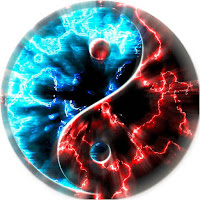My grandfather grew up in a
small village in Austria, today it would be located in the Ukraine. Life might have been tough for a Jew in that
part of the world, during the early part of the 1900’s, but, life was simpler
compared to today. I remember one of the
stories that my grandfather told me revolving around religious practice. Each Saturday morning, they would go to
Shabbat services – the entire village.
Afterward, there was a meal where the community would sit facing the
dais where the community’s Rabbi would speak / educate the community for hours
on end. In another story, my grandfather
and his sisters would help the community in preparing for Passover – their job
was to put the perforating holes in the matzo.
This was their fabric of life in Europe, not to dissimilar to the many
generations that preceded them. They
lived a spiritual life, they were educated in their rituals and daily, this was
their practice. I was even told that
there was a prayer when you finished in the bathroom and a blessing to wash
your hands. As Grandpa explained, this
is so that we remember to do all of these things.
Are we as a population still
spiritual in terms of the way that has been defined in previous
generations? Most of us have gone to
some type of religious education (i.e., Sunday School) as children. Heck!
We even sent our children. This
is a great way to learn the history, traditions and, in some cases, culture of
who we are from a religious point of view.
Napoleon Hill, In Think and Grow Rich, refers to the Infinite
Intelligence, his wording for a higher power.
When we pray, we ask externally for help, guidance and support. In The Power of Myth, Joseph Campbell talks
about that spiritual presence being inside us, comparing our relationship with
our higher authority using the symbolism of Yin and Yang, where, conceptually,
a piece or recognition of “G-d”, in a small way, has to be internal, otherwise
we cannot recognize each other.
If we have any belief in the
two outstanding thought providers above, do we need organized religion, the
related institutions, and practices / beliefs developed thousands of years
ago? As the future president of my
synagogue, I should be answering with a resounding YES. As someone searching for answers, it might be
more of a maybe? If I commune with a “higher
authority,” live a life with good morals and values, help others to achieve
goals and meditate on finding a guiding path, what does organized religion
offer me? Does it provide answers? Or, does it help us to find ourselves? Moses, in my mind the greatest of biblical prophets,
is often referred to as Moshe Rabbeinu, Moses our teacher. There is the phrase,
finding one’s yogi or guru, which is a person to follow and learn from. In both cases, these teachers provide an
education on ideas and have the ability to lead their people on a guided path,
which is true of most leaders that have had some revelation.
In my grandfather’s youth in
Europe, society was homogeneous; there really was no secular versus non-secular
until you left the village. In Skalat,
everyone was Jewish, everyone learned the same way, everyone practiced religion
the same way. It is noted that many of the
religious traditions and basic ideas are taken from the different groups of ancient
people, and transformed for a new peoples.
Living where I do, we are a “melting pot” of peoples, ideas and
background – a great way to learn tolerance and appreciate others. We no longer live in the Skalats of our
ancestors. It might sound like heresy,
but, it just might be time to take the 1500 – 2000 year old practices and provide
some updates. Do we all need some
connection to spirituality – YES. Do we
need a new way of passing on where we came from – YES. Grandpa’s youth had no cars, no telephones,
no radios, no television, and no computers.
Today, we live in a different, smaller world and we need to recognize
that so that we can prepare to face tomorrow…


No comments:
Post a Comment